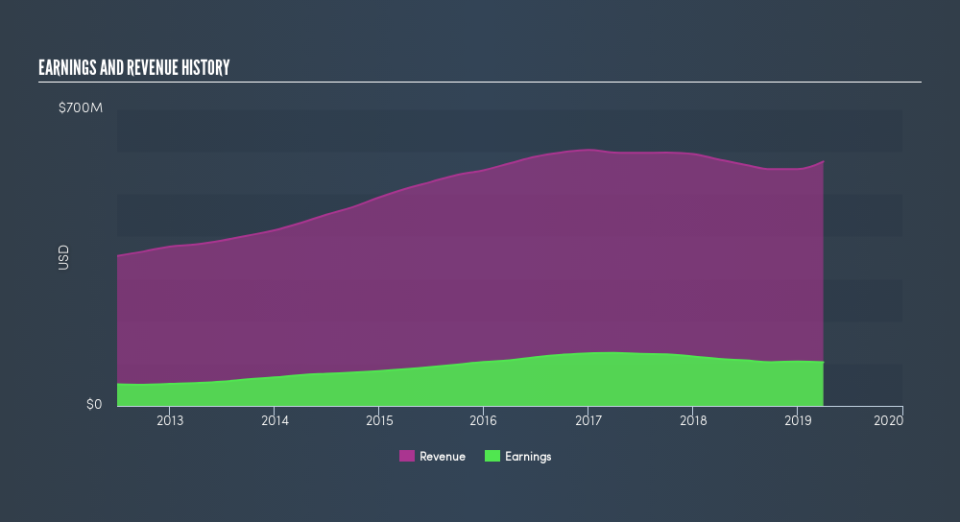One Thing To Remember About The Manhattan Associates, Inc. (NASDAQ:MANH) Share Price

Want to participate in a short research study? Help shape the future of investing tools and you could win a $250 gift card!
If you're interested in Manhattan Associates, Inc. (NASDAQ:MANH), then you might want to consider its beta (a measure of share price volatility) in order to understand how the stock could impact your portfolio. Volatility is considered to be a measure of risk in modern finance theory. Investors may think of volatility as falling into two main categories. First, we have company specific volatility, which is the price gyrations of an individual stock. Holding at least 8 stocks can reduce this kind of risk across a portfolio. The second sort is caused by the natural volatility of markets, overall. For example, certain macroeconomic events will impact (virtually) all stocks on the market.
Some stocks are more sensitive to general market forces than others. Beta is a widely used metric to measure a stock's exposure to market risk (volatility). Before we go on, it's worth noting that Warren Buffett pointed out in his 2014 letter to shareholders that 'volatility is far from synonymous with risk.' Having said that, beta can still be rather useful. The first thing to understand about beta is that the beta of the overall market is one. Any stock with a beta of greater than one is considered more volatile than the market, while those with a beta below one are either less volatile or poorly correlated with the market.
See our latest analysis for Manhattan Associates
What MANH's beta value tells investors
Zooming in on Manhattan Associates, we see it has a five year beta of 1.57. This is above 1, so historically its share price has been influenced by the broader volatility of the stock market. If this beta value holds true in the future, Manhattan Associates shares are likely to rise more than the market when the market is going up, but fall faster when the market is going down. Beta is worth considering, but it's also important to consider whether Manhattan Associates is growing earnings and revenue. You can take a look for yourself, below.
How does MANH's size impact its beta?
With a market capitalisation of US$4.2b, Manhattan Associates is a pretty big company, even by global standards. It is quite likely well known to very many investors. It takes a lot of money to influence the share price of large companies like this one. That makes it interesting to note that its share price has a history of sensitivity to market volatility. There might be some aspect of the business that means profits are leveraged to the economic cycle.
What this means for you:
Since Manhattan Associates tends to moves up when the market is going up, and down when it's going down, potential investors may wish to reflect on the overall market, when considering the stock. This article aims to educate investors about beta values, but it's well worth looking at important company-specific fundamentals such as Manhattan Associates’s financial health and performance track record. I highly recommend you dive deeper by considering the following:
Future Outlook: What are well-informed industry analysts predicting for MANH’s future growth? Take a look at our free research report of analyst consensus for MANH’s outlook.
Past Track Record: Has MANH been consistently performing well irrespective of the ups and downs in the market? Go into more detail in the past performance analysis and take a look at the free visual representations of MANH's historicals for more clarity.
Other Interesting Stocks: It's worth checking to see how MANH measures up against other companies on valuation. You could start with this free list of prospective options.
We aim to bring you long-term focused research analysis driven by fundamental data. Note that our analysis may not factor in the latest price-sensitive company announcements or qualitative material.
If you spot an error that warrants correction, please contact the editor at editorial-team@simplywallst.com. This article by Simply Wall St is general in nature. It does not constitute a recommendation to buy or sell any stock, and does not take account of your objectives, or your financial situation. Simply Wall St has no position in the stocks mentioned. Thank you for reading.

 Yahoo Finance
Yahoo Finance 
